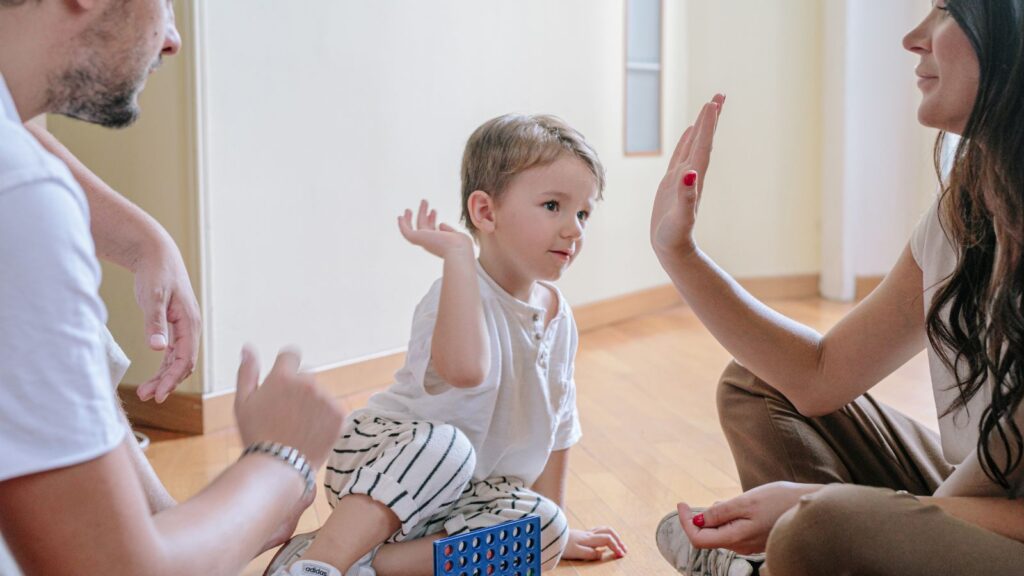Navigating the world of parenting can be a roller-coaster ride, and when your child has ADHD, the twists and turns can seem even more daunting. But don’t fret, understanding the nuances of ADHD and how it affects your child at different stages of their life can make a world of difference.
This article will guide you through the journey of parenting an ADHD child, age by age. From the early years of identifying symptoms to the teenage years of independence, we’ll shed light on various strategies and techniques. We’re here to remind you that you’re not alone in this journey, and with the right knowledge, you can help your child thrive.
Parenting an Adhd Child Age by Age
Understanding ADHD in children lies at the crux dealing with the challenges prevalent in parenting. This section delves into a detailed comprehension of ADHD and its key signs and symptoms across different ages.

ADHD, short for Attention Deficit Hyperactivity Disorder, is a neurodevelopmental disorder. It often starts in childhood and may continue into adulthood. It’s characterized by consistent patterns of inattention, hyperactivity, and impulsivity. These characteristics are present beyond the norm for the child’s age and development level. Understanding ADHD in its entirety could be a key factor in managing its impact on a child’s life.
ADHD symptoms often change and evolve with age, but certain signs are indicative across different ages. In early childhood, symptoms may include difficulty paying attention, acting without thinking, and excessive motor activity. When looking at middle childhood, outbursts of anger, difficulties following instructions and sustained attention difficulties often come to light. Teenagers with ADHD may display these signs along with impulsivity, organizational problems, and task management difficulties. Understanding these symptoms in context of a child’s age ensures the implementation of the most effective coping mechanisms.
Parenting Strategies for ADHD: Infancy to Preschool
During this critical development stage, parents grapple with nurturing an infant who typically shows signs of ADHD. It’s important to note, ADHD remains tricky to diagnose in infants and preschoolers. However, a discerning eye can pinpoint suggestive behaviors favoring an early intervention strategy. The following subsections detail essential parenting strategies.

An adoring parent, when confronted with an ADHD diagnosis, could be prompt to establish routines and structure. This offers comfort and predictability for the child. Employ consistency in the daily routine like feeding, playtimes, and sleeping. Routines become a natural strategy to deploy around infant-meal times, bedtimes, and playtimes.
Demand for early intervention cannot be overstated. Parents noticing unusual behavior, like extreme inattentiveness or hyperactivity, would benefit from seeking professional assessments. Such professional services include Family Service Centers and Child Development Clinics. They can provide the expertise needed to understand and manage ADHD. From a preventive stance, practicing pediatricians provide critical inputs and resources, given their regular interaction with the child. They can provide diagnostic assessments and refer the child to appropriate specialists if necessary. Early intervention services can help detect ADHD at an early age and offer the right support to the child, preparing them better for academic and life endeavors.
Managing ADHD in Elementary School-Aged Children
Elementary school-aged children encounter unique challenges as they begin structured learning and increase their interactions with their peers. For a child with ADHD, these challenges can intensify. This section delves into recommended parenting strateies for managing ADHD in school-aged children, focusing on providing academic support and accommodations along with promoting social skills and peer relationships.

Assisting children with ADHD in their academics takes strategic measures. For instance, creating a quiet, clean, and distraction-free study space can enhance their concentration abilities. Homework should be broken down into manageable chunks, with rewarding breaks in between.
Additionally, collaboration with educators to implement an Individualized Education Program (IEP) can be crucial. Under the Individuals with Disabilities Education Act (IDEA), an IEP allows tailored education plans and accommodations to support children with learning disabilities.



